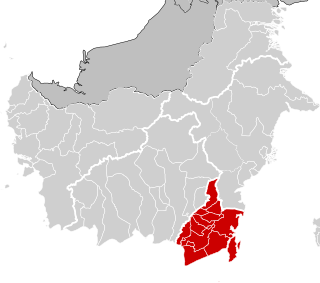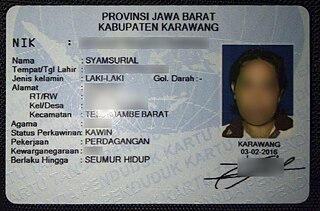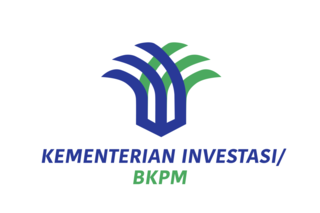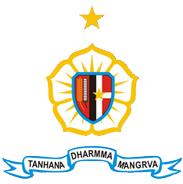Related Research Articles
Indonesian and Standard Malay are two standardised varieties of the Malay language, used officially in Indonesia on one hand and in Brunei, Malaysia and Singapore on the other. Both varieties are generally mutually intelligible, yet there are noticeable differences in spelling, grammar, pronunciation and vocabulary, as well as the predominant source of loanwords. The differences can range from those mutually unintelligible with one another, to those having a closer familial resemblance. The regionalised and localised varieties of Malay can become a catalyst for intercultural conflict, especially in higher education.
In Indonesia, village or subdistrict is the fourth-level subdivision below a district, regency/city, and province. There are a number of names and types for villages in Indonesia, with desa being the most frequently used for regencies and kelurahan for cities. According to the 2019 report by the Ministry of Home Affairs, there are 8,488 urban villages and 74,953 rural villages in Indonesia.

The Language Development and Fostering Agency, formerly the Language and Book Development Agency and the Language Centre, is the institution responsible for standardising and regulating the Indonesian language as well as maintaining the indigenous languages of Indonesia. It is an agency under the Ministry of Education, Culture, Research and Technology of Indonesia.

Malay was first used in the first millennia known as Old Malay, a part of the Austronesian language family. Over a period of two millennia, Malay has undergone various stages of development that derived from different layers of foreign influences through international trade, religious expansion, colonisation and developments of new socio-political trends. The oldest form of Malay is descended from the Proto-Malayo-Polynesian language spoken by the earliest Austronesian settlers in Southeast Asia. This form would later evolve into Old Malay when Indian cultures and religions began penetrating the region, most probably using the Kawi and Rencong scripts, some linguistic researchers say. Old Malay contained some terms that exist today, but are unintelligible to modern speakers, while the modern language is already largely recognisable in written Classical Malay of 1303 CE.

The Banjar or Banjarese is an Austronesian language predominantly spoken by the Banjarese—an indigenous ethnic group native to Banjar regions— in the southeastern Kalimantan of Indonesia. The Banjarese language is the de facto lingua franca for various indigenous community especially in South Kalimantan, as well as Central Kalimantan and East Kalimantan in general.
The modern Malay or Indonesian alphabet, consists of the 26 letters of the ISO basic Latin alphabet. It is the more common of the two alphabets used today to write the Malay language, the other being Jawi. The Latin Malay alphabet is the official Malay script in Indonesia, Malaysia and Singapore, while it is co-official with Jawi in Brunei.
Palembang, also known as Palembang Malay, or Musi, is a Malayic language primarily spoken in about two thirds of South Sumatra Province in Indonesia, especially along the Musi River. It consists of two separate but mutually intelligible dialect chains: Musi and Palembang. The urban Palembang dialect is a koiné that emerged in Palembang, the capital city of South Sumatra. It has become a lingua franca throughout major population centers in the province, and is often used polyglossically with Indonesian and other regional languages and dialects in the area. Since parts of South Sumatra used to be under direct Malay and Javanese rule for quite a long time, the speech varieties of Palembang and its surrounding area are significantly influenced by Malay Language and Javanese, down to their core vocabularies.

The Indonesian identity card, known in Indonesian as the Kartu Tanda Penduduk or KTP, is an identity card issued in Indonesia. Separate versions exist for Indonesian citizens and non-Indonesian residents. The card is issued upon reaching the age of 17 or upon marriage. For Indonesian citizens, the card is valid for life. For non-Indonesian citizens, the card's expiry date is the same as that of their residency permit. Since 2011, the Indonesian government has issued an electronic version of the card, known as the e-KTP, which contains an embedded microchip.
The Republican Spelling System was the orthography used for Indonesian from 17 March 1947 until 1972. This spelling was also called Soewandi Spelling after the Indonesian Minister of Education (Soewandi) at the time.

The Van Ophuijsen Spelling System was used as the orthography for the Indonesian language from 1901 to 1947. Before the Van Ophuijsen Spelling System was in force, the Malay language in the Dutch East Indies did not have a standardized spelling, or was written in the Jawi script. In 1947, the Van Ophuijsen Spelling System was replaced by the Republican Spelling System.

Ministry of State Apparatus Utilization and Bureaucratic Reform is a government ministry that is responsible for public servants in Indonesia. The ministry reports to the President of Indonesia, and is currently led by Mahfud MD as acting minister.

The Office of the Attorney General of the Republic of Indonesia, or Kejaksaan Agung Republik Indonesia is the competent authority to advise the Government of Indonesia on matters of law. It serves as the central organization for the Indonesian Public Prosecution Service. The Attorney General's Office is seated in the national capital Jakarta.
The Congress Spelling System is a spelling reform of Malay Rumi Script introduced during the third Malay Congress held in Johor Bahru and Singapore in 1956. The main characteristics of the system are the use of symbols in the International Phonetic Alphabet, going by the dictum of one symbol for one phoneme, and the new proposition in the writing of diphthongs.

The Indonesian electoral law of 2017, also known in Indonesia as Undang-Undang Pemilu, is the law regulating elections in Indonesia. Officially, it is known as the Law Number 7 of 2017. The law was passed in July 2017 following nine months of debate in the People's Representative Council.
The Za'aba Spelling was the second major spelling reform of Malay Rumi Script introduced in 1924. The reform was devised by Zainal Abidin Ahmad or better known by the moniker Za'aba, a notable writer and linguist at Sultan Idris Teachers College. Za'aba's orthographic system principally dealt with the assignment of vowels in closed syllables, distinguished the schwa from the half-open vowel /e/ by a new grapheme ⟨ě⟩, and insisted on the use of hyphens to differentiate affixes or post-positional emphases from the infinitives. The system as devised by Za'aba emphasised the importance to represent the original pronunciation of Johor-Riau Malay, where various modern standards of Malay were derived, that he viewed as the most elegant form of Malay.

The Ministry of Education, Culture, Research, and Technology is a government ministry of the Indonesian government responsible for education, cultural, research and technology affairs. Its formation resulted from the merger of the Ministry of Education and Culture and the Ministry of Research and Technology in April 2021, under the government of President Joko Widodo.

The Ministry of Investment is a government ministry formed by the Indonesian government in 2021. The ministry responsible for investment affairs and facilitating easiness of investment in Indonesia.

The National Research and Innovation Agency is a cabinet-level government agency formed by the Indonesian government in 2019. Originally a new agency attached to the Ministry of Research and Technology and leading to the formation of the Ministry of Research and Technology/National Research and Innovation Agency, the agency was controversially separated and established as a new non-ministerial government agency directly under the President of Indonesia on 28 April 2021. On 24 August 2021 the agency gained official cabinet level status through enactment of Presidential Decree No. 78/2021. Under the new presidential regulation, the agency became the sole national research agency of Indonesia.

The Pancasila Ideology Development Agency is a non-ministerial government agency formed by the Indonesian government in 2018 with Presidential Decree No.7/2018. The agency was tasked with the main task of preserving Pancasila, the state ideology, and its ideological development and implementation. It is the revitalisation of Presidential Unit of Pancasila Ideology Development formed in 2017.

National Resilience Institute is an Indonesian Non-Ministerial Government Agency tasked with carrying out government duties in the field of education for national leaders, strategic assessment of national resilience and strengthening of national values.
References
- ↑ "Keputusan Presiden No. 57 Tahun 1972 tentang Peresmian Berlakunya "Ejaan Bahasa Indonesia yang Disempurnakan"". Presidential Decree No. 57 of 1972 (PDF) (in Indonesian). President of Indonesia.
- ↑ "Surat Keputusan Menteri Pendidikan dan Kebudayaan RI Nomor: 0196/U/1975 tentang Peresmian Berlakunya "Pedoman Umum Ejaan Bahasa Indonesia yang Disempurnakan" dan "Pedoman Umum Pembentukan Istilah" di Seluruh Indonesia" [General Guidelines for the Enhanced Indonesian Spelling System]. Ministerial Decree No. 0196/U/1975 of 1975 (in Indonesian). Minister of Education and Culture.
- ↑ "Kepmendikbud RI No. 0543a/u/1987 Tentang Penyempurnaan Pedoman Umum Ejaan Bahasa Indonesia yang Disempurnakan". Ministerial Decree No. 0543a/U/1987 of 1987 (in Indonesian). Minister of Education and Culture.
- ↑ "Permendiknas No. 46 Tahun 2009 Tentang Pedoman Umum Ejaan Bahasa Indonesia yang Disempurnakan". Ministerial Decree No. 46 of 2009 (PDF) (in Indonesian). Minister of National Education.
- ↑ "Permendikbud Nomor 50 Tahun 2015 Tentang Pedoman Umum Ejaan Bahasa Indonesia". Ministerial Decree No. 50 of 2015 (PDF) (in Indonesian). Minister of Education and Culture.
- 1 2 3 4 Tasai, S Amran and E. Zaenal Arifin (2000). Cermat Berbahasa Indonesia: Untuk Perguruan Tinggi.
- ↑ "2. QS. Al-Baqarah (Sapi Betina)". Sindonews. Retrieved 22 September 2021.
- ↑ "25. QS. Al-Furqan (Pembeda)". Sindonews. Retrieved 22 September 2021.